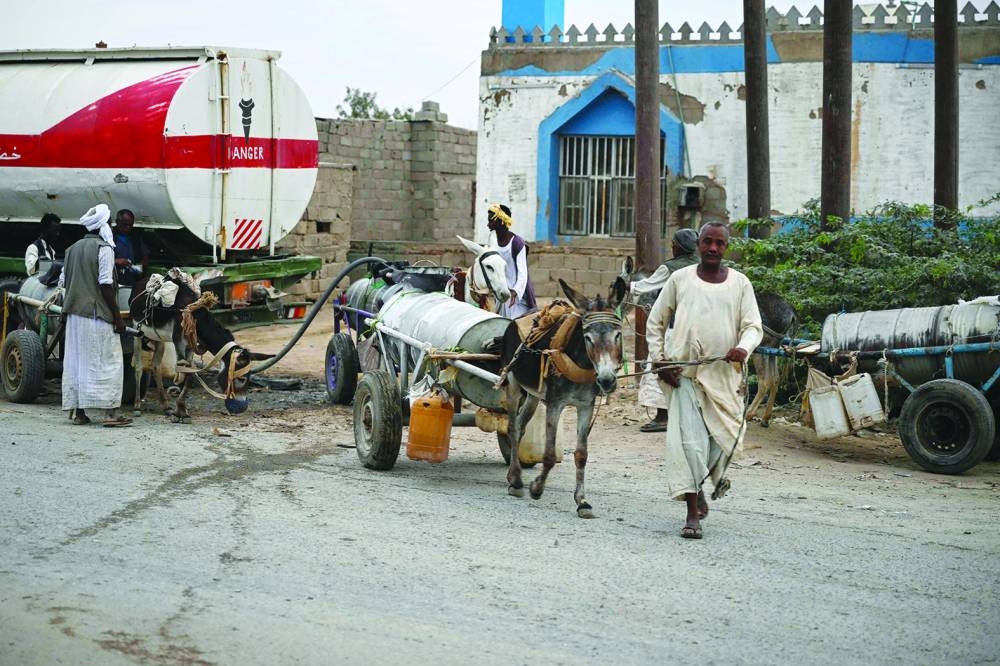One year since the conflict in Sudan erupted, thousands of desperate people are still fleeing the country daily “as if the emergency had started yesterday”, the UN said.
More than 8.5mn people have fled their homes since the fighting broke out, with nearly 1.8mn having escaped across the country’s borders.
“A year on, the war in Sudan continues to rage, with the country and its neighbours experiencing one of the largest and most challenging humanitarian and displacement crises in the world,” said Olga Sarrado Mur, spokeswoman for the United Nations’ refugee agency UNHCR.
“The ongoing conflict has shattered people’s lives, filling them with fear and loss. Attacks on civilians, and conflict-related sexual and gender-based violence, continue unabated,” she told a press briefing in Geneva.
“Sudan has experienced the almost complete destruction of its urban middle class: architects, doctors, teachers, nurses, engineers and students have lost everything,” she added.
Fighting in Sudan erupted on April 15 last year between the regular army and the paramilitary Rapid Support Forces. The conflict has killed thousands and has sparked a humanitarian disaster.
“Thousands are crossing borders daily as if the emergency had started yesterday,” Sarrado Mur said.
Those fleeing the country, mostly women and children, are arriving in remote areas across the borders “with little to nothing and in desperate need of food, water, shelter and medical care”, she added.
“As the conflict continues, and the lack of assistance and opportunities deepens, more people will be forced to flee Sudan to neighbouring countries or to move further.” The humanitarian response plan for inside Sudan is so far 6% funded, while the 2024 regional refugee response plan is 7% funded.
The war has destroyed Sudan’s already fragile infrastructure and pushed the country to the brink of famine.
Marie-Helene Verney, UNHCR’s representative in South Sudan, said 635,000 people had arrived in the country since April 15 — the equivalent of five % of the country’s population.
“This is the world’s poorest country, so you can imagine the pressure,” she said, via video-link from the capital Juba.
Verney said many refugees were urban, educated and middle class, with professional skills that UNHCR is trying to match to shortages in South Sudan, notably in health and education.
“The biggest challenge that we face is really the relentlessness of this crisis... it could get worse before it gets better,” she said.
A lot of unaccompanied children were coming, and single women with “heartbreaking stories” of physical violence en route, she added.
On Monday, UN human rights chief Volker Turk said the current situation in Sudan concerning sexual and gender-based violence was “absolutely horrific”.
“It is committed by all parties to the conflict in this absolutely senseless war,” he said.
Ahead of the anniversary, the Red Cross and Red Crescent Movement has meanwhile called on all parties in the conflict to protect civilians and those who can no longer fight.
“When homes, hospitals, and schools are damaged, and people who are not part of the fight are hurt, it not only causes immediate harm but also makes it much harder for communities to heal,” the movement said.

People refill donkey-drawn water tanks during a water crisis in Port Sudan in the Red Sea State of war-torn Sudan.
